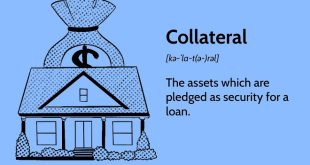Introduction
Choosing the right mortgage can be a game-changer when it comes to buying a home. With so many options out there, it’s essential to understand the different types of mortgage loans available. In this article, we’ll dive into the five main types of mortgage loans, breaking down the details to help you make an informed decision.
What is a mortgage Loan?
A mortgage loan is a type of loan used to purchase or maintain a home, land, or other types of real estate. The borrower agrees to pay the lender over time, typically in a series of regular payments that are divided into principal and interest. The property itself serves as collateral to secure the loan.

Fixed-Rate Mortgage
Explanation of Fixed-Rate Mortgages
A fixed-rate mortgage is a home loan with an interest rate that remains constant throughout the life of the loan. This type of mortgage is the most straightforward and popular among homebuyers.
Benefits and Drawbacks
The main benefit of a fixed-rate mortgage is predictability. Your monthly payments remain the same, making it easier to budget. However, the initial interest rates can be higher compared to other types of loans.
Ideal Candidates for Fixed-Rate Mortgages
Fixed-rate mortgages are ideal for homebuyers who plan to stay in their home for a long period and prefer the stability of a consistent payment amount.
Adjustable-Rate Mortgage (ARM)
Definition of Adjustable-Rate Mortgages
An adjustable-rate mortgage (ARM) has an interest rate that can change periodically, based on changes in a corresponding financial index that’s associated with the loan.
How ARMs Differ from Fixed-Rate Mortgages
Unlike fixed-rate mortgages, ARMs have interest rates that adjust at specified intervals. This means your monthly payments can go up or down.
Pros and Cons of ARMs
The initial interest rate on an ARM is typically lower than that of a fixed-rate mortgage, making it an attractive option for some buyers. However, the risk is that the rate can increase, leading to higher payments.
Who Should Consider an ARM?
ARMs are suitable for buyers who expect to sell or refinance before the adjustable period kicks in, or those who anticipate their income will increase in the future.
FHA Loans
Overview of FHA Loans
FHA loans are mortgages insured by the Federal Housing Administration. They are designed to help low-to-moderate-income buyers who may not qualify for conventional loans.
Benefits of FHA Loans
FHA loans require lower minimum down payments and credit scores than many conventional loans. They also offer competitive interest rates.
Eligibility Requirements for FHA Loans
To qualify, borrowers need a minimum credit score of 580 for a 3.5% down payment. Lower scores may still qualify, but a higher down payment is required.
Ideal Candidates for FHA Loans
FHA loans are perfect for first-time homebuyers and those with less-than-perfect credit histories.
VA Loans
Explanation of VA Loans
VA loans are mortgages guaranteed by the Department of Veterans Affairs. They are available to military veterans, active service members, and certain members of the National Guard and Reserves.
Benefits of VA Loans
VA loans offer several advantages, including no down payment requirements, no private mortgage insurance (PMI), and competitive interest rates.
Eligibility for VA Loans
Eligibility is based on length of service, duty status, and character of service. Surviving spouses of veterans may also qualify.
Who Can Benefit from VA Loans?
VA loans are a great option for eligible veterans and active service members looking for affordable home financing.
USDA Loans
What are USDA Loans?
USDA loans are backed by the U.S. Department of Agriculture and are aimed at helping low-to-moderate-income homebuyers in rural and some suburban areas.
Advantages of USDA Loans
These loans offer zero down payment options and reduced mortgage insurance premiums, making homeownership more accessible.
Eligibility Criteria for USDA Loans
Eligibility depends on income and location. The property must be in a USDA-eligible area, and the borrower must meet certain income requirements.
Best Candidates for USDA Loans
USDA loans are ideal for buyers looking to purchase in rural areas who meet the income requirements.
Comparing the 5 Types of Mortgage Loans
Side-by-Side Comparison of Key Features
Here’s a quick comparison of the five types of mortgage loans:
- Fixed-Rate Mortgage: Predictable payments, higher initial rates.
- ARM: Lower initial rates, potential for rate increases.
- FHA Loans: Low down payment, flexible credit requirements.
- VA Loans: No down payment, no PMI, for veterans and service members.
- USDA Loans: No down payment, for rural areas.
Pros and Cons Summary
Each loan type has its advantages and disadvantages. Fixed-rate loans offer stability, while ARMs offer lower initial rates. FHA loans are accessible for those with lower credit scores, VA loans provide significant benefits for veterans, and USDA loans make rural homeownership more achievable.
Suitability for Different Homebuyers
Your choice depends on your financial situation, location, and future plans. First-time buyers may prefer FHA loans, while veterans might benefit most from VA loans.
Factors to Consider When Choosing a Mortgage Loan
Interest Rates and Terms
Consider the long-term cost of the loan, not just the initial rate. Fixed rates provide certainty, while ARMs might save money initially.
Down Payment Requirements
Some loans require higher down payments, which can be a barrier for some buyers. FHA, VA, and USDA loans offer lower down payment options.
Credit Score Considerations
Your credit score will influence your loan options and terms. FHA loans are more forgiving, while conventional loans might require higher scores.
Future Financial Stability
Think about your long-term financial plans. An ARM might be risky if your income is uncertain, while a fixed-rate mortgage offers stability.
How to Apply for a Mortgage Loan
Steps Involved in the Application Process
- Check Your Credit Score: Ensure it’s accurate.
- Gather Documentation: Income, assets, employment history.
- Get Pre-Approved: Helps in understanding your budget.
- Compare Lenders: Look for the best rates and terms.
- Submit Application: Provide all required information.
- Close the Loan: Sign the final paperwork.
Tips for a Successful Application
Maintain good credit, save for a down payment, and avoid making major financial changes during the application process.
Common Mistakes to Avoid
Don’t open new credit lines or make large purchases before closing, and ensure all documentation is accurate and complete.
Common Mortgage Loan Terminology
Definitions of Key Terms
- Principal: The amount borrowed.
- Interest Rate: The cost of borrowing the principal.
- PMI: Private Mortgage Insurance, required for some loans.
- Amortization: The process of paying off the loan over time.
Importance of Understanding Mortgage Jargon
Knowing these terms helps you understand your mortgage options and terms, ensuring you make informed decisions.
Impact of Mortgage Choice on Long-Term Financial Health
How Mortgage Terms Affect Finances
The type of mortgage you choose will impact your financial health for years. Consider how changes in interest rates, payment amounts, and loan terms affect your budget.
Strategies for Managing Mortgage Payments
Set up automatic payments, budget for extra payments to reduce principal faster, and consider refinancing if rates drop.
Refinancing Options
Refinancing can help you secure a lower interest rate or change the loan term, potentially saving you money over time.

Real-Life Examples
Case Studies of Different Mortgage Types
Consider these scenarios:
- Fixed-Rate Success: A family stays in their home for 30 years with predictable payments.
- ARM Benefits: A young professional saves money with a low initial rate and refinances before the rate adjusts.
- FHA First-Time Buyer: A couple with a modest credit score buys their first home with a low down payment.
- VA Victory: A veteran purchases a home with no down payment and low interest rates.
- USDA Opportunity: A rural buyer secures a home with zero down payment and affordable terms.
Success Stories and Lessons Learned
These real-life examples illustrate how choosing the right mortgage can lead to financial success and stability.
Expert Tips for Homebuyers
Advice from Mortgage Professionals
Mortgage experts suggest getting pre-approved, comparing loan options, and understanding the terms before committing.
Common Pitfalls and How to Avoid Them
Avoid the temptation of low initial rates without understanding the long-term implications, and don’t rush the process. Take your time to make the best decision.
Conclusion
In summary, choosing the right mortgage loan is crucial for your financial well-being. From fixed-rate stability to the benefits of VA and USDA loans, understanding your options can help you secure the best deal. Consider your financial situation, future plans, and consult with experts to make an informed decision.
FAQs
What is the difference between a fixed-rate and an adjustable-rate mortgage?
A fixed-rate mortgage has an interest rate that remains constant throughout the loan term, while an adjustable-rate mortgage has an interest rate that can change periodically.
Can I switch from an ARM to a fixed-rate mortgage?
Yes, you can refinance from an ARM to a fixed-rate mortgage, often when the initial rate period ends or when interest rates are favorable.
How do I know if I qualify for an FHA loan?
FHA loan qualification is based on your credit score, income, and down payment ability. Generally, a credit score of 580 or higher is required for a 3.5% down payment.
What benefits do VA loans offer to veterans?
VA loans offer no down payment, no PMI, and competitive interest rates, making them a cost-effective option for eligible veterans and service members.
Are USDA loans only for rural areas?
USDA loans are primarily for rural and some suburban areas. The USDA provides an online tool to check property eligibility based on location.


